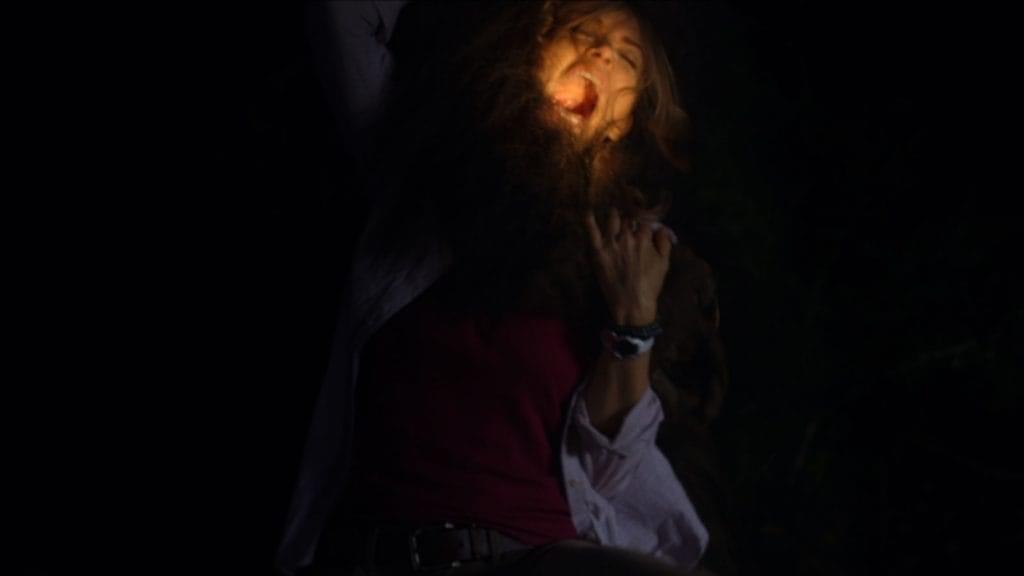
A few months back, my job forced me to speak with members of a very well known, very powerful right-wing think-tank. (Don’t ask!)
One time, I enjoyed a lovely chat with a very sweet little old lady who cheerily informed me she had to leave so she wouldn’t be late for her John Birch Society meeting. Later on, I spoke to an elderly gentleman who was angry about the build up to war with Iraq. Lefty that I am, I thought I had stumbled upon a “cool”, independent thinker. Then he added that the coming war was — you guessed it — “the work of the Jews.” (I didn’t get the e-mail. The international Zionist conspiracy may control the media, but we clearly need to improve our inter-cabal communication!)
Nevertheless, when it comes to anti-Semitism and xenophobia, America’s heartland has nothing on certain portions of Europe. Austria, for example, is best known to many as the country that produced Adolph Hitler. To be fair, it also gave the world the waltz, Billy Wilder, the Von Trapp Family Singers, medium dark-roast coffee and strudel. Yet, it’s the failed vegetarian artist with the penchant for genocide that people remember.
I should also probably mention that Austria is also the country that produced my favorite aunt, a lovely Viennese woman who managed to escape that country as a girl and made her way to the U.S., where she married into my father’s family and learned that the large majority of her family had been murdered by the Nazis.
Cut to the year 2000. Jörg Haider, probable Nazi sympathizer and leader of the far-right Freedom Party, rides a crest of anti-EU fears and anti-immigrant bigotry to pick up 27 percent of the vote and a spot on the nation’s cabinet. The result is an international black eye for a country already viewed with suspicion for the 1986 election of alleged WWII war criminal Kurt Waldheim and, well, that Hitler thing.
And so four separate Austrian film crews set out to talk with the country’s regular folks, mostly Haider sympathizers, to try and answer the question that always comes up when supposedly good people vote for bad candidates: “What were they thinking?” The answer seems to be “not a whole lot.”
Pretty much a series of artfully crafted talking-head interviews — conducted in cars, homes and workplaces both by off-camera questioners and an affable fellow who appears to be the Austrian Larry King, “State of the Nation” is a bleak look into the private lives of mostly bleak people. Interestingly, nearly all of them profess to be apolitical at first. Still, it’s no time at all before they’re issuing a series of off-hand statements of support for the “yuppie Fascist” Haider and an overall fear of foreigners, particularly those whose religion and/or skin-color they find disturbing.
There are some exceptions, most notably a charming disabled artist. But, she reminds us, since she is both handicapped and an artist; she is two times an outsider — and two times a potential victim of right-wing government cutbacks.
And then there is the hard-drinking couple who star in the film’s final interview. They start out with a hilarious drubbing of George W. Bush guaranteed to warm the heart of all U.S. progressives. Then the inevitable sting in the tale comes: They turn out to be the most unapologetic racists and xenophobes of the entire film, convinced that foreigners are there only to mooch off of government largesse and otherwise pollute Austria’s precious bodily fluids.
If you’re not fascinated by world politics (i.e., if you’re an American) “State of the Nation” is bound to be tough slogging. Even as something of a political animal with some fairly strong personal interest in the subject matter, I became impatient at times. It would have been helpful to have a few footnotes somewhere explaining the ins and outs of recent West European history.
Some background might also have helped with of one of film’s few truly cinematic moments, a brief musical interlude featuring three youthful singers who’s heads lay at the bottom of screen. Even with a translation, the importance of the lyrics — if any — was pretty much lost to me. (I’m guessing it’s something in the vein of the “Tomorrow Belongs to Me” — the idealistic faux Nazi anthem composed by songwriters Kander and Ebb for “Cabaret”, but I could be way off base.)
Still, “State of the Nation” must play a great deal better to the Austrian and European audience for whom it was intended. And it is a valuable reminder that, as my late aunt surely knew first hand: when evil knocks at the door, it usually looks just like you and me, only stupider.


